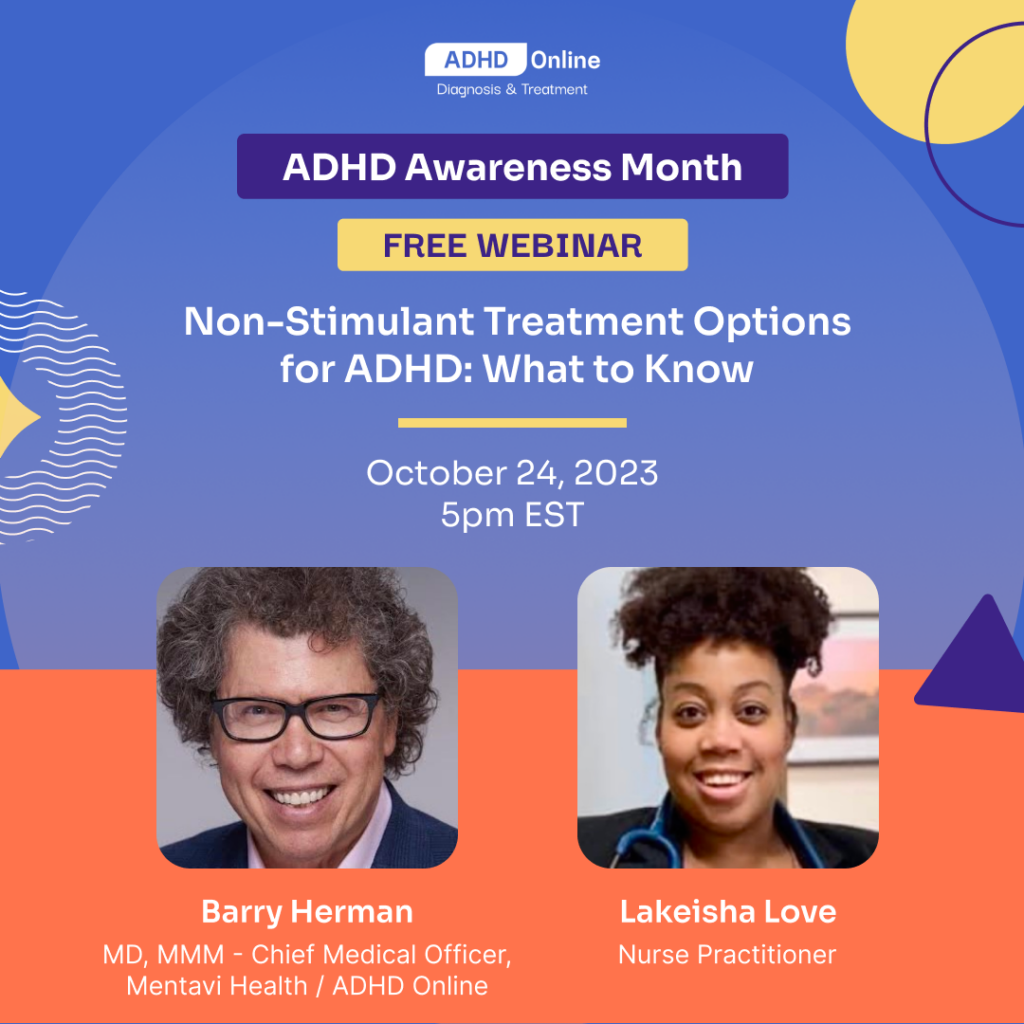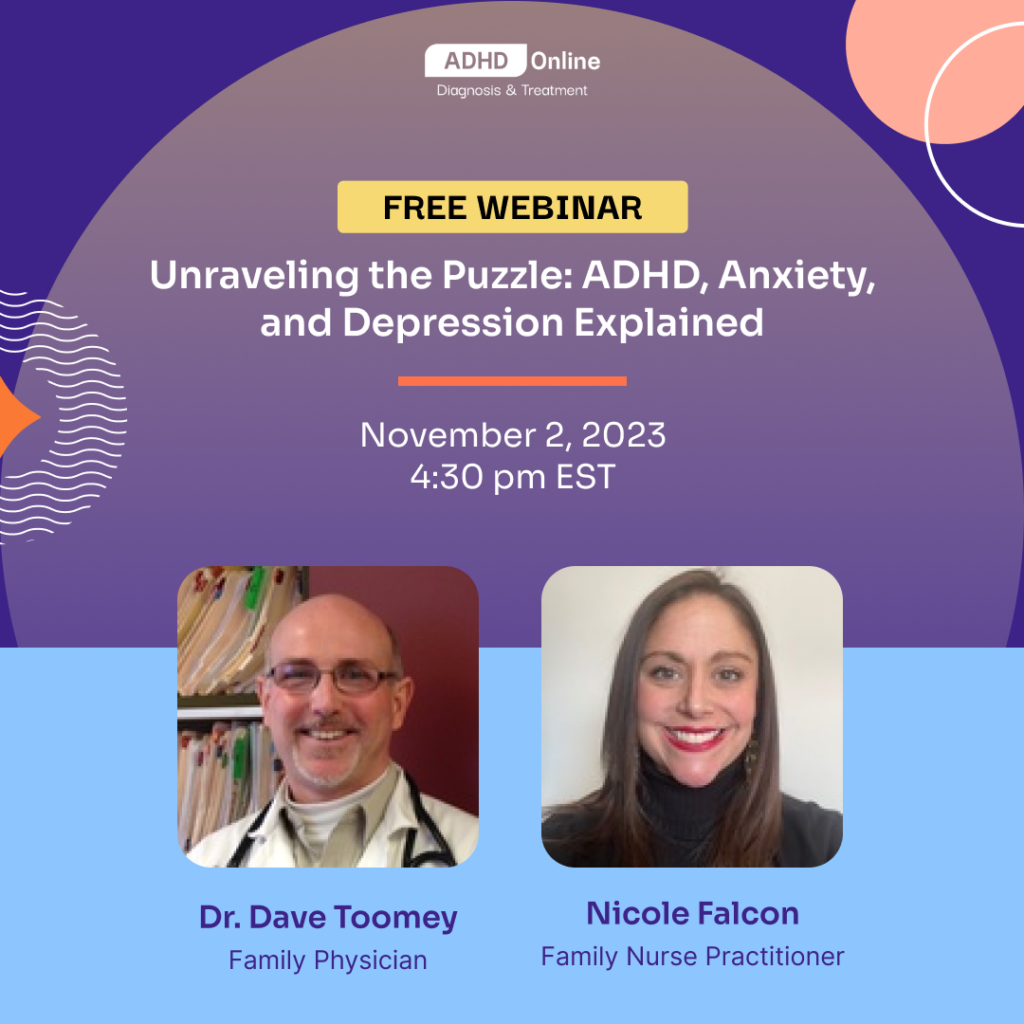By Lisa Fields
To conclude ADHD Awareness Month, ADHD Online hosted two webinars, the third and fourth in its series of webinars this autumn. Four ADHD experts discussed two topics: Non-stimulant medication options for patients with ADHD and connections between ADHD, depression and anxiety.


Non-stimulant medication
In the third webinar on October 24, ADHD Online’s Chief Medical Officer Barry K. Herman, M.D., a board-certified psychiatrist, and Lakeisha Love, a nurse practitioner who is dual-certified in family medicine and family psychiatry, spoke about non-stimulant medication for ADHD.
Although doctors typically prescribe stimulant medications to patients with ADHD, non-stimulants are also an option — particularly for patients who don’t respond well to stimulants.
“About 20 to 30 percent of patients who have ADHD and are treated with stimulants do not do well for one reason or another,” Dr. Herman said. “Either they … don’t really improve that much with either class of stimulants or they have side effects that are very difficult for them to manage, (including) poor appetite, poor sleep, weight loss, (or feeling) jittery or agitated.”
Non-stimulants usually work for only 50% to 60% of patients with ADHD. But when they’re effective, there may be advantages to using them, the experts said.
“The non-stimulant medications are not scheduled drugs, meaning they don’t carry the same kind of risks that stimulants do for misuse or addiction,” Dr. Herman said.
Patients with ADHD need to be patient once they begin taking non-stimulants, Love said.
“You have to take it over time in order to see the long-term benefits to manage your ADHD symptoms,” Love said. “Typically, it can take about four to six weeks to see the full benefits. But you can start seeing some improvement as early as two weeks.”
During the webinar, Dr. Herman and Love also answered questions about the safety of non-stimulant medications for ADHD during pregnancy, the benefits of non-stimulants for patients with high blood pressure and whether stimulants and non-stimulants have different side effects.

ADHD, anxiety and depression
The fourth and final webinar, on November 2, featured David Toomey, D.O., a family physician with experience in psychological childhood trauma counseling, and Nicole Falcon, a certified family nurse practitioner who specializes in child, adolescent and adult psychiatry. They spoke about connections between ADHD, depression and anxiety.
It’s common for patients with ADHD to also have depression or anxiety.
“Eighty percent of the time, ADHD has a coexisting condition. Fifty percent of the time, people experience anxiety, and about another 15 or so percent is depression, with 7 to 8 percent of that is bipolar,” Dr. Toomey said.
Some patients with ADHD don’t realize that they also have anxiety or depression. The reverse is also true.
“They may get treated for anxiety or oftentimes depression, and sometimes the medicines don’t quite work,” Dr. Toomey said. “We (may) find that really underlying all of it is their ADHD.”
A number of treatments are available for all three conditions. Some medications can effectively treat ADHD while also treating anxiety or depression or both. But some patients need to take more than one medication — one to treat ADHD and another for depression or anxiety.
“I see a lot of patients that still need their antidepressant,” Falcon said. “The stimulant isn’t always effective in (treating) all of their symptoms.”
During the webinar, Dr. Toomey and Falcon talked about the impact that exercise can have on ADHD, depression and anxiety. They also answered questions about the importance of adopting healthy lifestyle changes, possible links between ADHD and autism and whether ADHD medication may cause symptoms of anxiety or depression.






